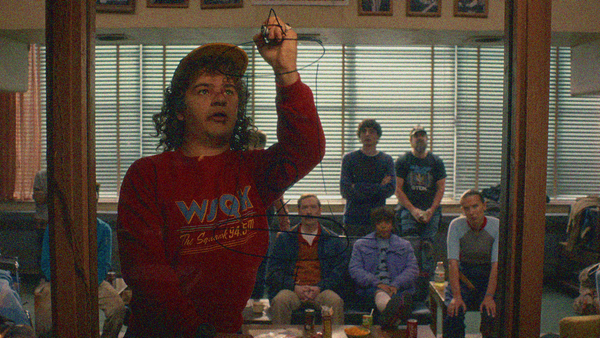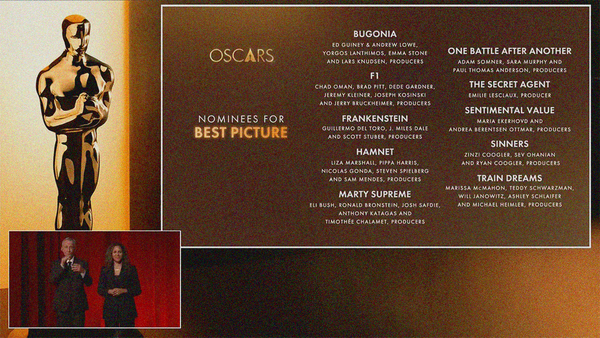Week Ending 4/4/25
Gr8 Chase

With a three-game goal streak, seven games to go, and only three more goals to score before grabbing hold of the NHL’s goal record, it’s pretty much a foregone conclusion that Alex Ovechkin gets the job done this season. Few predicted it was possible even before he broke his leg and made a miraculous comeback just sixteen games later. He truly is a Russian machine.
This is a guy who still drinks Coca-Cola on the bench. A guy who has never changed his eating routines despite being just five months from turning 40. You might forget too that he lost his true rookie season to a lockout. This all probably should have happened in 2024. But he keeps ripping shots through goaltenders and averaging over seventeen minutes a game (twenty of late to push things since the Capitals already clinched a playoff berth). Are the commentators right that he’s barely moving out there? Sure. He’s still scoring over a point a game and is +17 doing it, though.
It’s crazy to think that fans my age and older have lived through this twice. I was twelve when Wayne Gretzky overtook Gordie Howe and here we are thirty years later watching history repeat itself (in almost the same amount of games with Wayne playing 1,487 and Ovi currently sitting at 1485). I just dug out my jumbo mail-in contest card commemorating the event. It’s historical stuff.
As far as the Russian/Ukraine conversation goes: I get both sides. Yes, Ovi still has a photo with Putin on social media. Yes, it would be great if he spoke out against the war. But he and his family live in Russia. Safety is a concern. Saying nothing might be akin to complicity, but not everyone can be Nikita Zadorov. Good on Dominik Hašek for using his platform to call out Ovi’s place in this moment, but I think we can separate the achievement from the war. It should serve as an asterisk to Ovi’s legacy, but maybe not to the record itself.
What I Watched:
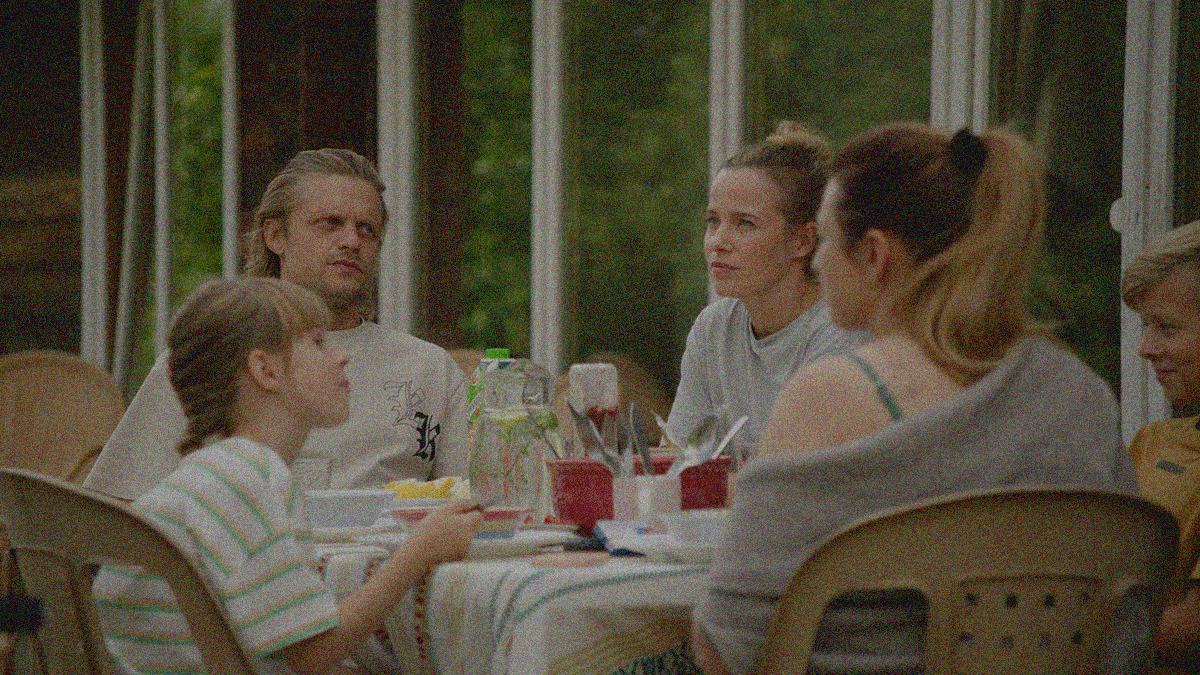
DROWNING DRY
(New Directors/New Films; Lithuania’s 2025 International Oscar submission)
It's a phenomenon wherein someone who survives a near-drowning incident faces complications because the body doesn't know the danger has ceased. Your vocal cords spasm and close to prevent water from entering the lungs, but the absence of that water forces the event to also stop air from entering. So, you ostensibly drown despite your lungs being dry.
While there's a depiction of this condition within Laurynas Bareisa's Drowning Dry, it's merely a catalyst for the drama that follows. Inspired by a similar real-life occurrence that forced the filmmaker to resuscitate his two-year-old son, the film mainly deals with the traumatic impact such scenarios cause for those involved. Bareisa ultimately found himself revisiting the almost-tragedy, repeating what happened in his mind only to find subtle shifts in perception or details within his memory. He uses this emotional response to infer upon the formal structure of his script so that the audience experiences the helpless panic that results.
A family summer vacation unfolds linearly for the first almost forty minutes. Since Lukas (Paulius Markevicius) wins an MMA tournament the same weekend as Tomas' (Giedrius Kiela) birthday, their wives (sisters in Gelmine Glemzaite's Ernesta and Agne Kaktaite's Juste) plan a trip to their parents' country home to celebrate. Unspoken rivalries ensue whether it's Lukas trying to keep up with Tomas' reckless driving (to almost tragic ends), Tomas proving he can fight (he can't), or the women leaving their husbands to fend for themselves with the kids: Lukas and Ernesta's Kristafus (Herkus Sarapas) and Tomas and Juste's Urte (Olivija Eva Viliüné). Ernesta copes with the risk in Lukas' career. Tomas copes with middle-aged insecurities. They all seek balance in an uncertain world.
Culminating with a catastrophic morning at the lake, we suddenly fast-forward an unknown number of days to witness an aftermath we assume was born from one truth only to discover a different one. It's upon this revelation that Bareisa takes us back to the unfinished drama to complete the scene and show us where our terror went awry. Rather than simply pick-up where he originally cut to black, however, Bareisa rewinds a bit further to repeat a song and dance number the women performed before heading to the water. Everything occurs much like we remember except for the song selection. It's a jarring moment because we become unsure whether we're about to see what happened after what we already saw or an alternative reality entirely.
The final forty-plus minutes therefore unfold non-linearly as we learn a bit more of what happened only to skip forward yet again. The result is less like my initial assumption of Bareisa being an unreliable narrator and more like we're being exposed to the truth through Ernesta's PTSD. We are to treat that initial cut to black as the point of no return. That's when the adrenaline spike of fear began and it never let’s go. What's more, however, is that everything we've missed and are about to understand (either visually or through dialogue) has already been seen before. Bareisa is very meticulous in ensuring the unseen horror is itself a mirror image of something we've already experienced. Maybe you cheat death once, but your luck runs out.
It's a fascinating way to tell what is an otherwise familiar tale of fateful tragedy and the inevitable implosion of its survivors’ lives. I'll admit that the first rewind had me dismissing Bareisa's choice as a gimmick seeking to breathe new life into an otherwise generic narrative, but the second and third skips bring everything into focus as a necessary means to an emotional end. Reading about why he constructed it this way after the fact only renders the result a bigger success because it's not about coincidence or manipulation. He sought to portray his own trauma and the myriad ways in which it manifests (panic attacks, invincibility, overcompensation, etc.) through each of his characters.
So, while I'm being conscious to not give anything away as far as who suffers from what, just know that it's okay to give yourself to the film's odd rhythm because that sense of confusion you feel is purposeful. The awkward silence of Lukas and Tomas eating outside and the weird comment Ernesta makes about a friend fostering seven kids is too. These are fallible people dealing with internal doubts while striving to stay afloat. Some of that pushes them to perhaps be careless and thus responsible for what follows. Some of it exacerbates their inability to deal with the fallout. And some even helps them find the strength to carry through. Our brains are fickle and our emotions are impulsive. Life is rarely ever perfect.
- 7/10
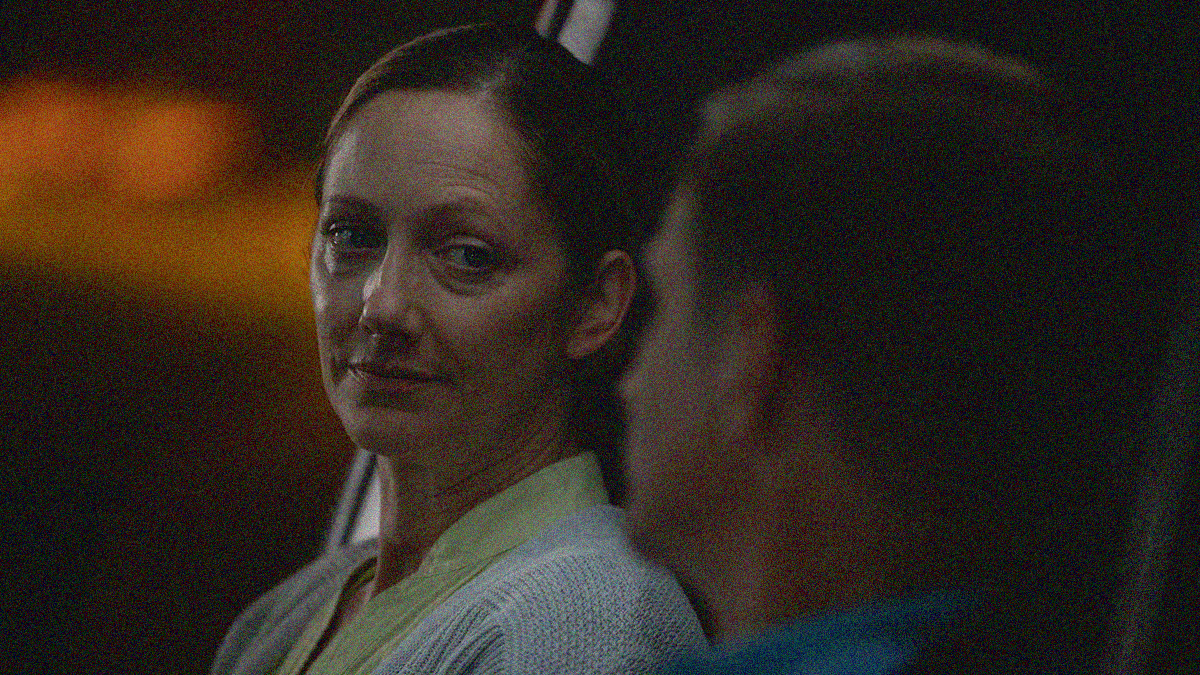
ERIC LARUE
(limited release)
Adapted by Brett Neveu from his own stage play—which debuted in 2002 at the A Red Orchid Theatre, of which he is an ensemble member and Michael Shannon a co-founder—the latter's directorial debut Eric LaRue proves to be a very off-putting film. I don't say that because of the subject matter, though. I'd use "difficult" to describe its narrative centered upon the complex aftermath of a school shooting. No, I call Neveu's story "off-putting" because it fully leans into the awkwardness of tragedy. We laugh when we're uncomfortable and every single character on-screen epitomizes this fact. I applaud the attempt to breathe life into this phenomenon, but I can't say it does the topic justice.
That's not to say it doesn't work in certain aspects, though. I absolutely love the commentary on religion and how a church—no matter how well meaning its pastors might believe themselves to be—exploits these sorts of horrors to close ranks, recruit parishioners, and solidify its authority on "healing." First there are the Presbyterians and Steve Calhan (Paul Sparks) desperately trying to be the savior Janice LaRue (Judy Greer) needs to move forward with what her son did (murdering three classmates in cold blood before returning home like nothing happened). Then there are the Redeemers and Bill Verne (Tracy Letts, whose "Bug" also premiered at Red Orchid) evangelizing grief in a way that strips Ron LaRue (Alexander Skarsgård) of agency as a means of relief.
After having recently attended a family's member's funeral wherein the denial born from a spiritual lobotomy was in full effect, the theatricality of the Redeemers service on-screen and the obvious trauma Laura (Jennifer Engstrom) is working through as one of the mothers whose son was murdered is spot-on. I'm not here to say what they're doing is unhealthy since whatever gets you through the pain to approach understanding is valid, but Neveu and Shannon pull no punches in their depiction of Ron's gradual indoctrination. He embraces the idea that Jesus will carry his burden. He yearns for such a simple and quick solution to the feelings his awkward introvert feels. They show how invasive this route is and how aggressive he becomes in trying to erase his suffering.
Janice rejects that. She needs to keep feeling it because she can't shake the mix of guilt and confusion roiling within. It's why she looks past Calhan's overt enthusiasm to attempt the dialogue he promises he can facilitate with the other victims' mothers in his congregation (Annie Parisse's Stephanie and Kate Arrington's Jill). Janice doesn't want to forget. She wants to understand. And she hopes sitting with them might move her in that direction despite the very real chance that they both blame her for what happened. It doesn't matter that she and Ron didn't supply the guns or that they didn't peddle militia rhetoric. They raised a murderer and should be punished right along with him. It's the sort of complexity that Fran Kranz's Mass and Grayson Moore and Aidan Shipley's Cardinals handle so well.
The thing about Eric LaRue is that it doesn't mine these complexities to search for answers or empathy. No, it seems more interested in stoking the hate instead. It craves provocation. Ron and Janice pulling further apart as their journeys towards healing diverge with animosity and apathy towards each other. Janice seeking causes for an unjustifiable effect that pushes the other mothers to start questioning her culpability more. Even the final scene pitting Janice against her son Eric (Nation Sage Henrikson) in prison—her first time visiting him—proves combative against the audience. It presents Eric with neurodivergent tendencies as though it could be construed as an excuse before ultimately having his admission of remorse rebuked by a mother demanding purpose.
I think this type of controversial incitement is probably what made the play an attractive piece to produce, but I don't believe it's constructive. It focuses on the nihilistic aspect of the whole and our eagerness to choose avoidance rather than education. Because it is easier to believe your son's heinous crime was committed out of necessity rather than whim. It is easier to believe your dead son got to smile by Jesus's side in Heaven early rather than think he left this world too soon. It is easier to hate the parents of the actual criminal rather than acknowledge they've lost their son too. Yes, he's still alive. But he's not there. In many respects he's no longer human (in a moral or legal sense). It's not about forgiveness. It’s about finding a sense of clarity.
By deciding to highlight mankind's worst aspects, Neveu and Shannon undercut the drama. It's an intentional choice—the undercurrent of cringe humor proves as much—so, kudos to them for executing it well, but it's hardly worthwhile insofar as saying anything of true merit. And that's why it's so off-putting. Greer, Skarsgård (who is channeling Shannon himself here), Parisse, and Arrington are absolutely fantastic, but it's tough to simply watch them all become some form of monster (except Arrington since Jill is the one piece with a hope for nuance) in response to Eric's monstrousness. The narrative complexity becomes a superficial coating atop the moral complexity, exploiting it to trigger emotions that inevitably aggravate more than instruct.
- 5/10

FREAKY TALES
(in theaters)
On May 10, 1987, Eric "Sleepy" Floyd put the Golden State Warriors on his back and scored a record twenty-nine points in the fourth quarter to cap a fifty-one-point performance that helped stave off a Los Angeles Lakers sweep. His team would ultimately lose the next game and the series, but the legend of that night still lives on. So much so that filmmakers Ryan Fleck and Anna Boden decided to make a film about it. Rather than go the straightforward Sugar route, however, the duo decided to follow-up their big-budget MCU foray Captain Marvel with a timely grindhouse anthology romp pitting the underdogs of the Bay Area against a band of Nazis itching to have their heads exploded Scanners-style.
The result is the extremely entertaining Freaky Tales narrated by Oakland's own Too $hort. Think of the rapper as a repository of urban myths surrounding that specific NBA playoff run. He gives us the "facts" while also sprinkling in what he's "heard" to cut through the speculation and breathe life into Fleck and Boden's wildly violent homage to an era and area close to their hearts (Fleck used his memories growing up in Oakland as a road map). Because it isn't just Too $hort (DeMario "Symba" Driver) and Sleepy Floyd (Jay Ellis) who show up. There's also Danger Zone rappers Entice (Normani) and Barbie (Dominique Thorne). Settings like punk venue 924 Gilman, multiplex Grand Lake Theater, and ice cream parlor Loards. And a literal list of name-checked Warriors players.
Chapter One takes us to the Gilman and centers on friends Tina (Ji-young Yoo) and Lucid (Jack Champion) as their love of counterculture and hate for Nazis gradually allows love to blossom. Chapter Two follows Entice and Barbie as they deal with racist cops like Ben Mendelsohn and hope to land their big break via a rap battle versus $hort. Chapter Three centers mob heavy Clint (Pedro Pascal) on his last tragic day on the job now that his own debt is finally paid off. And Chapter Four finally lets Floyd shine both on the court and off it as an Asian art aficionado with a distinct focus on weaponry. Each is connected in minimal ways (with some characters seen in multiple parts) to maintain a narrative through-line that complements the thematic use of green energy harnessed by Psytopics.
What is Psytopics? It doesn't really matter. More a catch-all name to explain some of the insane stuff that happens than a fleshed-out self-help, infomercial-esque program crucial to the plot, it's almost just a brand name for the vibe of 1980s Oakland. Characters talk about signing up for a class, but only Floyd actually makes mention of having taken one (his own mind-over-matter faux seminar is apparently sponsored by the company). So, when Entice's microphone glows green, it's not because she's wielding the power of something she was taught. It's more innate. She finds her inner strength and it simply manifests with that Psytopic glow for the audience. Same with the green lightning. It's like Oakland is being supercharged to battle evil.
There's a lot of evil to combat when you have a gang of white supremacists trolling for minorities to torture. Can the Gilman crew band together and take the war to their abusers? Can Entice allow herself to believe someone might truly be trying to help when it seems like the entire world is out to get her? What about Clint desperately looking to shed the fact that he's killed people for his employer? Can he turn the page and escape a fate he used to dole out? They're all looking to tap into what Sleepy Floyd has already harnessed, but basketball heroics are no match for real-world heartache. Can he channel his rage into a climactic and cathartic slaughter of his enemies?
The "kids'" would-be disenfranchised victims rising up are a great entry point before being entrenched in the more tragic underpinnings of adult life. It's fun to see a bunch of punks lay waste to skinheads and empowering to watch Danger Zone turn an audience who paid to watch Too $hort over to their side (while earning his respect). Fleck and Boden build us up with excitement so we can sustain that energy through Clint's more sobering affair (complete with its own comic jumpstart via a cameo you can guess coming considering how often he's mentioned without being mentioned). And then they release that dread with one last bloody release wherein Ellis' goofy grin pairs with a steely resolve to ensure we head home smiling.
Pascal is the straight man as a result. He harbors no illusions as far as what he's dealing with and how much leeway he has to exit the other side. While his Clint has a job and the determination to complete it, however, he still has the humor to let everyone around him finish their shtick. Seeing him get invested in a topic we know he couldn't care less about only makes the joke better. It's the complete opposite with Mendelsohn. He's chewing up every second of scenery and having an absolute blast. From the smarmy racism to the sarcastic impatience (mostly targeting a deadpan Angus Cloud, whose death in 2023 shows how long Freaky Tales has taken to get released), his caricature of evil shows the inherent confidence of unearned privilege. His comeuppance is an absolute delight.
Oh. And the cameo wasn't wrong. Breaking Away is pretty great.
- 7/10
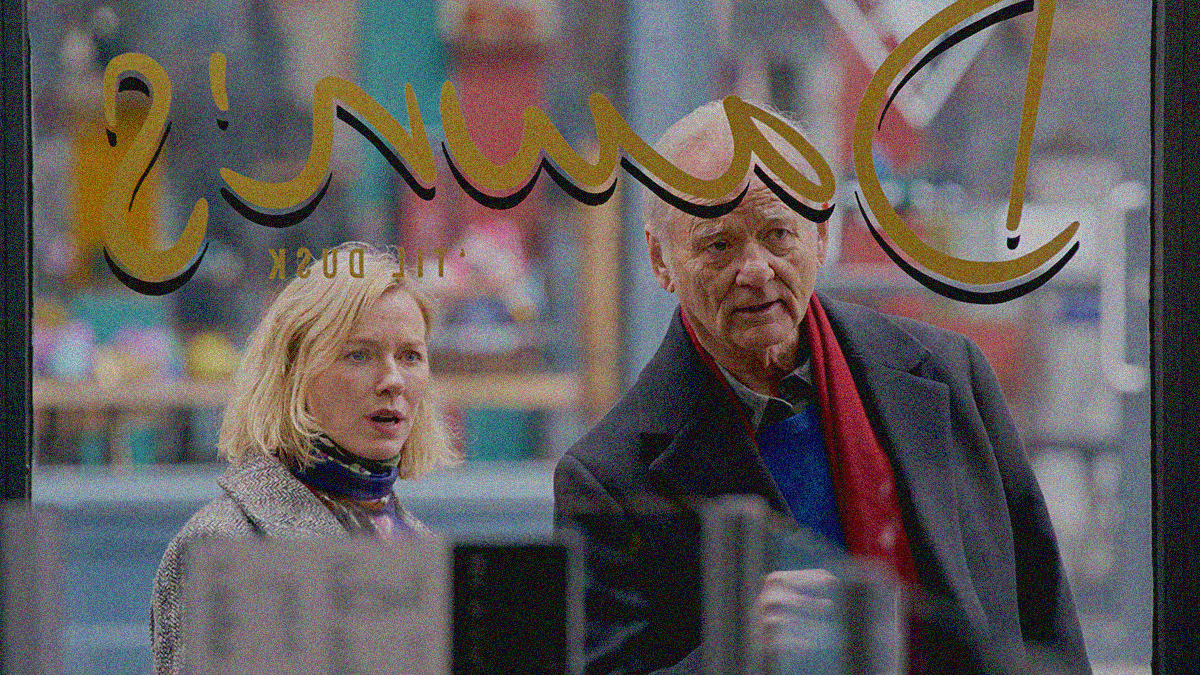
THE FRIEND
(in theaters)
I joked to myself that Scott McGehee and David Siegel's adaptation of Sigrid Nunez's The Friend was the cinematic equivalent to the bumper sticker "Who Saved Who," not knowing that it actually kind of is. It was funny in my head because Iris (Naomi Watts) is as need in of Apollo the Great Dane as he is of her. And Walter (Bill Murray) knew that would be the case. He saw her struggling with writing and teaching and asked her to edit a book of his correspondences (to his ex-wives, plural, mistresses, and friends) as a means of working off the block. So, it makes sense he'd also unofficially bequeath Apollo to her upon his death knowing his absence would prove as debilitating to Iris as to the dog.
But then we see her watching It's a Wonderful Life and waxing poetic on the idea of the selfishness of suicide and the notion that an angel could choose to save someone from doing it for the wrong reasons. These words come out during an emotionally cathartic moment wherein Iris imagines a conversation with her deceased best friend to work through her anger at what he did. She accuses Walter of not thinking about anyone but himself when he took his life—least of all the dog left helpless on the other side of the door. And while Iris might not overtly come to the same epiphany, we realize that the opposite might be true. Because Walter didn't just find Apollo a home, he found Iris a friend.
It's a simple yet profound sort of sentiment that truly does epitomize that annoyingly cloying sticker so many rescue owners place on the trunk of their cars. Considering we get a scene with Iris telling the psychiatrist (Tom McCarthy) from whom she's attempting to receive a "service dog" certificate that she feels like Apollo's "service human," it's a literal representation of it too. Dog lovers won't be able to resist the symbiotic relationship that blossoms between these two characters as Iris works through her grief. It's probably why Nunez's novel was a bestseller and why this film has resonated so much since its Telluride debut last year. Yes, it may seem superficially cliché enough for Walter to admit as much himself (through Iris' imagination), but it still remains honest.
Learning that the book was exactly how Iris explains she would write it—the only character with a name would be the dog—you must applaud McGehee and Siegel's ability to turn what amounted to a speculative fiction unfolding in the mind of a narrator reconciling her emotions into a fully realized dramedy that takes place in the real world. All the other characters surrounding their lead become mirrors and sounding boards. You have Val (Sarah Pidgeon) presenting the same conflict as far as what to do with Apollo once an eviction notice shows up at Iris' rent-controlled apartment door. Barbara's (Noma Dumezweni) forceful "he's not my problem anymore" white lies to get him out of her hands. Tuesday's (Constance Wu) materialistic, wannabe savior believing that caring for Apollo would be easy.
I love the constant barrage of condolences spun through the existence of the dog too. There's one instance of someone saying "sorry for your loss" as a drive-by in a school hallway, but we know every subsequent "oh, you're the one with the dog" feels just as infuriating because her being in possession of said animal is a direct result of her loss. Iris' use of the word "intervention" is correct because everyone thinks they know what's right for her. But they really only know what would be right for them. They wouldn't want to lose that small yet affordable apartment, so, of course, Apollo must go. Iris agrees with them too ... mostly. At first. Because she has become mired in the writer's block, routine, and complacency. Only Walter truly acted in her best interests—well, he at least thought of her when acting in his own.
Because the thing she really needed was someone to love. Walter gave her that. It wasn't perfect or romantic, but it was true. She was literally the only woman he was ever able to have a lasting relationship with since all the others were seen as sex objects first. He was willing to break those bridges for the physical intimacy. He conversely stopped the physical intimacy to maintain a kinship with Iris. I don't necessarily like how the film ultimately puts her happiness into his hands both when alive (ending the romance) and dead (foisting Apollo onto her), but you can look past it because it takes two to tango. She stayed close with him despite the red flags elsewhere too. Add the "Daddy issues" notion, however, and the film's depiction of agency leaves something to be desired.
But, like with the It's a Wonderful Life metaphor, Walter is more Clarence than George in the analogy. The interesting thing is that he plays the role for both the dog and Iris. Because he does kill himself. As such, it was he who saved Apollo from a life of isolation roaming NYC—not the opposite. And then it was his death that strove to save Iris from a dearth of creativity. That's the messed-up part. You could read The Friend as Walter killing himself to save her. As though he realized his presence was keeping her tethered just like her sick father needed her to care for him. Iris was always too quick to turn her existence into a tool to assist his genius. And now to protect Apollo. The psychological possibilities are endless. Regardless, the messaging is sweet. The depiction of human/canine love and affection is pure. And Watts is given a wonderful part to excel in.
- 7/10
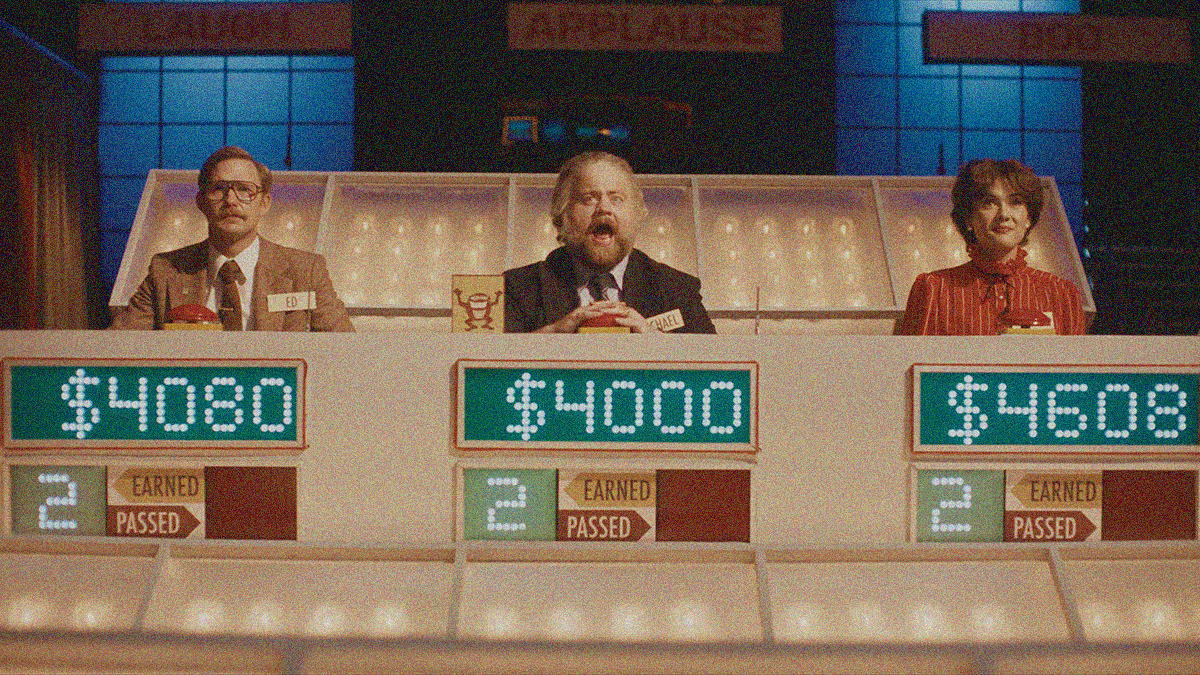
THE LUCKIEST MAN IN AMERICA
(in theaters)
It's an insane true story. Michael Larson flies from Ohio to California to audition and earn a spot on the game show "Press Your Luck" before winning an unthinkable $110,237. Could someone truly be that lucky? Could he be smart enough to somehow beat a presumably random series of lights and prize panels? Could he be reckless enough to challenge the game's built-in risk without fear of losing everything? These were the questions CBS posed in the production booth because they were desperate to find some evidence that would allow them to refuse payment. In the end, however, they mailed the check, changed the game's infrastructure to prevent a repeat, and banned Larson from returning.
As Samir Oliveros' cinematic version of Larson's (Paul Walter Hauser) victory The Luckiest Man in America states before the studio logos even grace the screen: names and facts have been changed and combined. While this is a reality in the business to streamline the narrative and make it as compelling as possible, Oliveros and co-writer Maggie Briggs were very liberal with their creative license to really augment their lead's back story. Yes, he drove an ice cream truck, but he didn't drive it all the way to Television City. Yes, he had a daughter with his wife (Haley Bennett) who was celebrating a birthday, but he also had two other children from two other women. So, you smooth out the edges and embellish the everyman mythos to make Larson an underdog worth our endearment.
The other way to do that is by creating a villain: Bill Carruthers (David Strathairn). A co-creator of the show and de facto "man in charge," the film opens with him hand-picking Larson precisely because he seemed schlubby enough for audience investment and helpless enough to guarantee a loss. Here was a Whammie fanatic with a personal connection via his family tradition of watching the show during breakfast with his daughter. How could you not want him on that stage for the crowd to love him like a sweet little puppy? Larson appeared to be the perfect mark to go along with a Baptist minister (Brian Geraghty's Ed) and dental assistant (Patti Harrison's Janie). Three soft-spoken balls of nerves to either slip up or play it safe so the show could continue normally.
Bill's right-hand man Chuck (Shamier Anderson) is less enthusiastic. He smells con man from the jump, but he has no real power and can only shoot his boss an "I told you so" face once things begin going off the rails. I wouldn't go so far as to categorize the movie as a thriller like IMDb, but Chuck does inject a bit of suspense once he's enlisted to figure out how Larson is doing it ... if he's doing anything at all. The middle section plays like a stationary chase as Michael keeps pressing that button and Chuck keeps rummaging through the contents of the ice cream truck parked in the lot. Can they stop him? Can they prove he's cheating? Can they spin his luck into a victory for the channel too?
There's a lot of moving pieces. This is a character-driven dramedy through and through with some really nice human moments (Ed comforting and consoling Michael when things get crazy) and entertainingly heated exchanges behind the scenes (Walton Goggins' host, James Wolk's tech, Maisie Williams' PA, and others are trying to do their jobs to keep the show running without accidentally putting their own heads on the chopping block for what's happening). And all the while Larson is trying to call home to tell his birthday girl the good news despite the walls closing in. Because tensions are rising higher and higher. Maybe they don't know what he's doing, but Michael knows they understand it's something.
I enjoyed the direction Oliveros and company go as far as turning Larson's ex-con grifter into a folk hero. The film ostensibly does to his actual story what CBS hopes to do in this onscreen reenactment: ride the coattails of public sentiment to the bank. So, you let Michael stumble into a talk show taping (hosted by Johnny Knoxville). You let him finally make that call and realize he truly is doing this for his daughter. You let the host lean into the roller coaster ride and egg Larson on rather than try and trip him up. Ed even becomes his biggest cheerleader despite not being able to play the game since Micheal keeps hitting extra spins. We are the crowd forming around the craps table when a hot hand is working its magic. As one character says, "It's the American Dream."
Hauser has made a career out of this sort of role. Always hapless, I do prefer hapless with a heart of gold (see this and Richard Jewell) over hapless opportunist (see I, Tonya and "Cobra Kai")—although the latter is a ton of fun too. His ability to pivot from confident to ashamed on a dime is unparalleled. We feel his anxiety and ride the rush of excitement because Hauser wears every emotion on his sleeve. So, it's the perfect contrast to have Strathairn feeling the heat so his own anxiety proves prevalent for the opposite reason. Add Anderson's coolly vindictive path towards self-preservation and the game is on. The era-specific production design, expert pacing, and captivating twists once the truth is uncovered provide the scaffolding so the actors can turn it into gold.
- 7/10
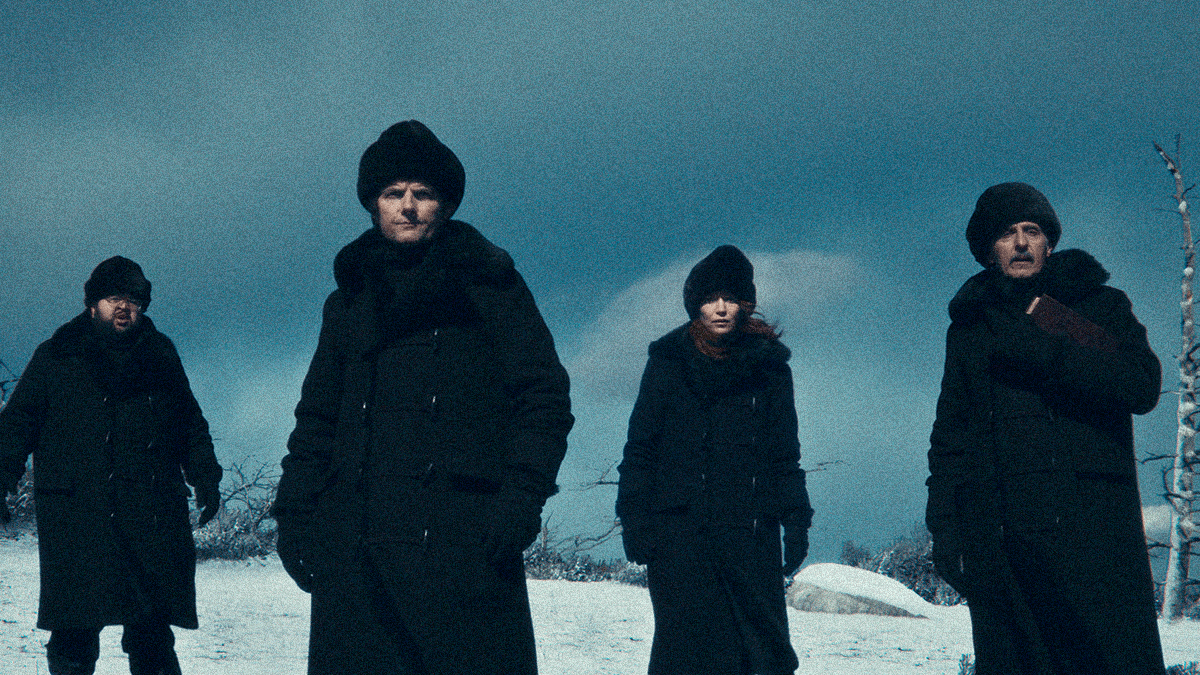
SEVERANCE: Season Two
(streaming on AppleTV+)
My initial thought upon completing Dan Erickson's "Severance" Season One was that he and executive producer/director Ben Stiller were going to have a difficult time living up to the promise. Because this isn't "The Bear". Yes, it's character driven with a great mix of comedy and drama like Christopher Storer's show, but the simple fact that it doesn't exist in the real world brings with it myriad questions. This is a puzzle box the likes of which we haven't truly seen since "Lost" and we all know how unwieldy and meandering that became as the creators sought a way out. Would "Severance" suffer the same fate? Or did Erickson have the answers from the jump?
After listening to an interview recently, I'm not quite sure he did. He credits Stiller with grounding the story and removing unexplainable bits of color that skewed even more surreal than the final product. That's not to say Erickson didn't still have an endgame planned. Maybe he merely went overboard on the sky's-the-limit reality of playing in a completely fictional sandbox. The question would therefore be whether he and Stiller could implement the guardrails necessary to maintain that same level of mystery while also giving each seemingly weird detail purpose. Talk of behind-the-scenes turmoil towards that goal scared me. A three-year wait for Season Two (union strikes or not) scared me more.
The good news: I think they do have a destination. One could say Season Two is all about putting the loose ends from its predecessor onto the rails that will get us there. The identity of Ms. Casey (Dichen Lachman). The cult-like, oligarchical hold the Eagan family has on this world. Harmony Cobel's (Patricia Arquette) past. The goats. All these things that made us hypothesize meaning become a bit clearer once the one-two punch of "Hello, Ms. Cobel" and "Goodbye, Mrs. Selvig" finish. Because we do need to witness the consequences of Mark (Adam Scott), Helly (Britt Lower), Dylan (Zach Cherry), and Irving's (John Turturro) unsanctioned Overtime Contingency Protocol. That first episode shows it from the "innie" perspective. The second from the "outie" perspective.
It is a lot to process, however. And Erickson and company are forced to travel at lightning speed to get it all in. They don't have the luxury of keeping worlds separate anymore. Mark S and Mark Scout each have their own specific quest to travel now that he (and we) can no longer pretend they are the same person. That's the real point of the show, after all. That creating a new consciousness creates a new person regardless of whatever legal loopholes someone's lawyers can write-up to the contrary. Helena Eagan was wrong when she told Helly R she wasn't human. So wrong, in fact, that stating those words ultimately ignited the first battle of this revolution in "The We We Are". Nothing emboldens someone to want to fight their oppressor more than constant dehumanization.
The main "outie" plot is obvious: Mark must weigh reintegration to figure out how to rescue his wife. The others—Dylan dealing with the fallout of his "innie" discovering he has children, Irving sleuthing out why he was at Burt's (Christopher Walken) doorstep, and Helena closing ranks to ensure her "innie" doesn't become her own company's downfall—are contingent on what happens on the severed floor. Add that Cobel's dismissal and Mr. Milchick's (Tramell Tillman) promotion bring with them a need to pour water on the fire via a new "friendlier" work environment and the deception grows tenfold. Because the more you cater to the "innie", the greater the risk of trouble for the "outie". Autonomy demands freedom. Freedom demands sacrifice.
Since the season does move fast (it's ten episodes long, but devoting one to Irving, one to Cobel, and one to Gemma means there are only seven to truly advance everyone together), the big deception is easy to guess. Not that the show is trying to hide it. The only motivation a character has to lie is exactly what we soon discover. The trick then is still making it an interesting reveal. Tying it to an internal epiphany and, subsequently, the most heartbreaking moment yet is a job well done. Coupling its damaging effect on the victim with an equally horrific violation upon another only ups the ante to prove that Erickson isn't messing around. If he's going to give the "innies" life, he must also give them emotions ("tempers"). And just like Mark's loss of love drives him to Lumon, the threat of lost love for the "innies" drives them to desperation.
I enjoyed what that means both for its impact on the plot (we finally learn what the numbers are) and the acting showcase it provides the entire main cast. Turturro and Cherry are next level because their arcs are purely emotional. Scott and Lower are great too, but they are so intertwined with the narrative propulsion that we do lose a bit of complexity (although Mark S and Helly R's choice to be pawns is voluntary as a means to giving the finale's opportunity to be selfish greater impact). It's great to see Lachman finally get a chance to shine too. She is effortlessly shifting personas to fantastic effect with the sadness of her "real" self shining through the pain of her "job." Arquette doesn't get much screentime, but she's excellent as always when present.
The real highlight is Tillman. What an absolute gift. I didn't think his Milchick could get better than the middle management façade of being pals with and disciplinarian for his severed employees. But the moment he settles into his new role as floor supervisor is the moment he realizes he might have it the worst. Because the Eagans (especially their fixer Mr. Drummond, played by Ólafur Darri Ólafsson) treat him like he treats Macro Data Refinement. Since he isn't severed, however, he must endure their slights and tone-deaf bigotry knowing full well what's happening. He tries to take it in stride. He tries to point his rage at his new assistant Miss Huang (Sarah Bock's intriguing arrival whose presence is more for Cobel's past and Milchick's anger than her own present). Eventually, he's just as incensed as MDR.
Despite the unavoidable shakiness of trying to smooth out the mysterious edges that made the enigmatic Season One such a singular masterpiece while still advancing character development (and supporting a revolving door of stunt cast bit parts from John Noble to Merritt Wever and Gwendoline Christie to James Le Gros and Sandra Bernhard to Bob Balaban and Alia Shawkat to Jane Alexander), Season Two is still an impressive ride that I do believe lives up to the promise of the first while also laying a foundation to ensure better pacing for the third. We might not have fewer questions despite the answers provided, but those queries are much more focused now. The world has been enlarged geographically and philosophically as the work spills into reality and the "innies" become fully aware that their existence isn't a game. Bring on the war.
- 8/10
Cinematic F-Bombs:
This week saw The Beaver (2011), The Bridges of Madison County (1995), Gung Ho (1986), National Lampoon’s European Vacation (1985), Tank (1984), and Winner (2024) added to the archive (cinematicfbombs.com).
James Garner dropping an f-bomb in Tank.
New Releases This Week:
(Review links where applicable)
Opening Buffalo-area theaters 4/4/25 -
Freaky Tales at Regal Galleria, Quaker
Thoughts are above.
The Friend at Dipson Amherst, Capitol; Regal Elmwood, Transit, Galleria, Quaker
Thoughts are above.
Hell of a Summer at AMC Maple Ridge; Regal Elmwood, Transit, Galleria, Quaker
The Luckiest Man in America at Regal Elmwood, Transit, Galleria, Quaker
Thoughts are above.
The Martial Artist at Regal Elmwood
A Minecraft Movie at Dipson Capitol, Flix; AMC Maple Ridge, Market Arcade; Regal Elmwood, Transit, Galleria, Quaker
Princess Mononoke 4K at North Park (select times); Regal Elmwood, Transit, Galleria, Quaker
Sikandar at Regal Elmwood
Streaming from 4/4/25 -
- 825 Forest Road – Shudder on 4/4
- Test – Netflix on 4/4
- Y2K – Max on 4/4
- The World According to Allee Willis – Hulu on 4/5
- 2073 – Max on 4/7
- Not Just a Goof – Disney+ on 4/7
- Lake George – Hulu on 4/8
- The Dad Quest – Netflix on 4/9
- Frozen Hot Boys – Netflix on 4/10
- G20 – Prime on 4/10
Now on VOD/Digital HD -
The Actor (4/1)
Audrey (4/1)
Black Bag (4/1)
The Colors Within (4/1)
“Totsu, Kimi, and Rui are able to reconcile the two halves of themselves together and see a way forward via compromise for both. Maybe bending the rules will actually get them closer to God than if they blindly followed each to the letter.” – Full thoughts at jaredmobarak.com.
Green and Gold (4/1)
Harbin (4/1)
Paddington in Peru (4/1)
Opus (4/1)
Shiver Me Timbers (4/1)
You’re Cordially Invited (4/1)
Fog of War (4/4)
The Monkey (4/4)
Night of the Zoopocalypse (4/4)
No Address (4/4)
The Unbreakable Boy (4/4)
Thanks for reading Hey, have you seen ...?! Subscribe for free to receive new posts and support my work.

